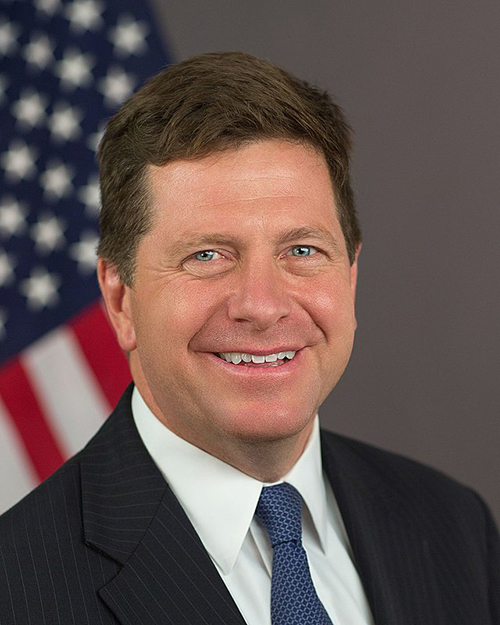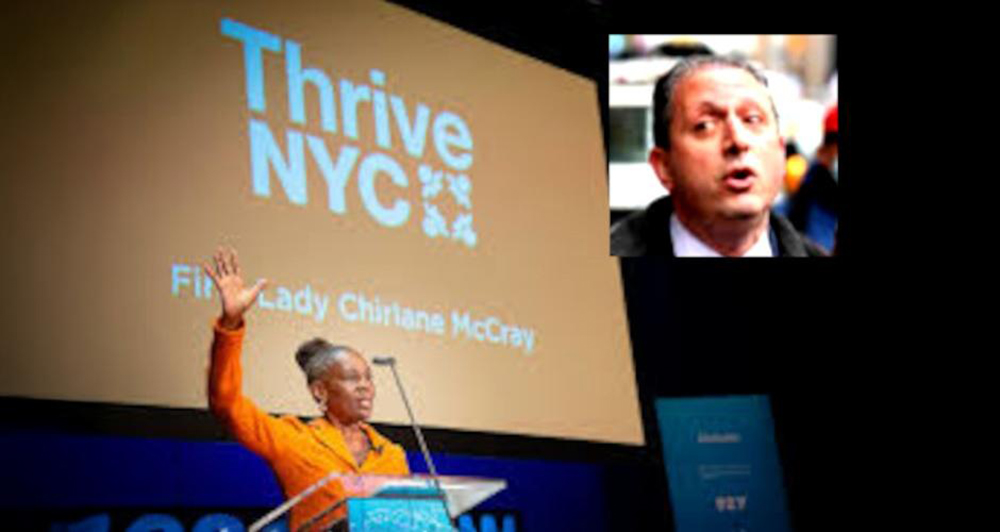|
Getting your Trinity Audio player ready...
|
By: Gary Tilzer
On January 15, 2022, Michelle Go, a 40-year-old Asian American woman, tragically lost her life when she was pushed in front of an oncoming New York City subway train at the Times Square station. The individual responsible for this senseless murder, Martial Simon, was a product of the city’s broken mental health system—trapped in a vicious cycle where individuals with severe mental illness are shuttled between psychiatric hospitals, Criminal courts, jails, and the streets.
Almost three years after Michelle’s murder, on November 18, 2024, Ramon Rivera went hunting on the streets of the city to kill three more New Yorkers. Rivera, like Michelle’s murderer and hundreds of others, are trapped in NY’s mental illness-deadly turnstile: hospitals, courts, jail, and wandering the streets turnstile. Starting at 8:22 am, in the Chelsea neighborhood Rivera fatally stabbed Angel Gustavo Lato Landi, an immigrant construction worker who raised his sister Berta after their mother died. Just two hours later, at 10:27 am, Rivera murdered Chang Wang, an Asian businessman fishing in the East River near the Water Club, causing him to bleed out his life. The final victim, Wilma Augustin, a migrant mother of an eight-year-old, living in a midtown shelter, was attacked and fatally stabbed near the UN building at 10:55 am.

Since the initial reports of Rivera’s triple murders on November 18th, there have been no follow-up media stories. In contrast, after Michelle’s tragic 2022 murder, extensive follow-up coverage followed, largely driven by the Asian-American community and Michelle’s friends who organized the Times Square memorial service. During this event, politicians gathered and made public pledges to address the state’s failing mental health system which wastes billions in government funds every year. These promises, however, have largely gone unfulfilled, highlighting a stark contrast in the media’s response to these two tragedies.
NY’s Mental Health Failure That Killed Michelle Continues Despite Michelle’s 2022 Memorial Political Promises
In a poignant New York Times Op-Ed, Justin Go, Michelle’s father, shared the profound grief his family endured due to the prolonged legal process surrounding his daughter’s killer and his mental state. He called Michelle’s death and the Times Square memorial service where his daughter’s picture was emblazoned on an electronic billboard for the world to see on January 18, 2022, “a call to action to fix New York’s mental health system.”
Three years ago, Congresswoman Grace Meng, who hosted Michelle’s Times Square memorial, passionately stated, “We need to make sure we are working to get justice for Michelle.” U.S. Senator Chuck Schumer, in a message read by Meng, echoed the need for action: “Nobody deserves to feel unsafe when they are on the subway or walking the streets. I will continue working with my colleagues to make NYC a safer place for everyone.”
City Council Speaker Adrienne Adams urged that Michelle’s death must drive urgent change, stating, “The legacy of her death must push us forward to address the gaps that led to such a tragedy.” Manhattan DA Alvin Bragg, also at the memorial, announced a $9 million initiative to break the cycle of mentally ill New Yorkers cycling through the justice system without proper treatment. New York State Attorney General Tish James, speaking at the event, demanded immediate action, saying, “We have people on the street who are a danger to themselves and others. It is time for urgent actions.” James also called for the restoration of the thousands of psychiatric hospital beds cut by the state over the last decade. Congressmen Jerrold Nadler and Goldman sponsored the Michelle Alyssa Go Act, which aimed to increase the number of Medicaid-funded psychiatric beds in the city. Unfortunately, the bill failed to pass in Congress. State Senator Brad Hoylman-Sigal and Manhattan Borough President Mark Levine called on the broke MTA to spend billions to install train gates on subway platforms to prevent riders from being pushed onto the tracks.

Lander’s Reliance on Nonprofits for Political Power Has Wasted Billions on Failed, Ineffective Fixes for NY’s Mental Health Crisis
NYC Comptroller Brad Lander, who spoke at Michelle Go’s memorial service, claimed an increase in government funding to community-based organizations (CBOs) was the solution to New York’s mental health crisis. Lander was elected with significant support from volunteers and contributions from board members of Brooklyn’s Fifth Avenue Committee, a government-funded nonprofit he ran until he ran for the council; the City Controller, like most elected officials, use CBOs as political tools to obtain or get reelected to a political office, in clear violation of well-established IRS Rules that prohibit political involvement of not-for-profit organizations.
Moreover, The Same Park Slope nonprofit that helped Lander win a City Council election in 2009 is now his wife’s nonprofit client along with hundreds of other government-funded groups. For Lander, these nonprofits are not just community resources, they operate for politicians like political clubs in their quest for higher office, including Lander’s ambitions to become the next NYC Mayor.
Lander’s actions highlight a disturbing pattern of prioritizing his political career over his promises to address New York’s mental health crisis. Despite vowing to honor Michelle’s memory by reforming the state’s failing mental health deadly emergency, Lander has failed to hold former Mayor de Blasio and his wife, Chirlane McCray, accountable for the financial mismanagement of the ThriveNYC initiative. As Comptroller, Lander had the authority to audit McCray’s program, which was supposed to address the city’s mental health failures, but he chose not to act. An audit would have exposed how ThriveNYC became a vehicle for political patronage, funneling taxpayer money into nonprofits that supported de Blasio’s re-election campaign, rather than effectively addressing the mental health crisis. Jewish Voice, Jan. 2022: The City’s Non-Profit Political Complex Has Recklessly Spent Billions on the Homeless Who Still Occupy Our Streets and Subways
By not conducting an audit of ThriveNYC, Lander effectively gave a free pass to the progressive leaders in the NY City Council and Albany, who continue to funnel government funds into these misused nonprofits while also blocking necessary reforms, such as changing the bail law to allow judges to commit the violent mentally ill to hospitals. A thorough audit would have revealed that these nonprofits are not solving the city’s mental health disaster and are failing to prevent horrific crimes committed by individuals trapped in the cycle of hospitals, courts, jails, and the streets. Lander’s refusal to hold ThriveNYC accountable has also suppressed important discussions and media coverage on the need for reforms supported by organizations like the New York State Psychiatric Association, the National Alliance on Mental Illness, the Mental Health Association of New York City, and the mayor’s office all of which advocate for empowering judges to involuntarily commit those with severe mental illness, particularly when they pose a danger to public safety.
Controller Brad Lander, Congressman Jerrold Nadler, Manhattan Borough President Mark Levine, State Senator Brad Hoylman-Sigal, and Councilmember Erik Bottcher—all of whom attended Michelle’s memorial and pledged three years ago to address the state’s broken mental health system—are staunch opponents of bail law reforms. Their November 21 letter calling for an investigation by the Department of Correction, Department of Homeless Services, and Health + Hospitals of the Rivera killings, comes across as a disingenuous attempt to cover their tracks, rather than taking responsibility for their failure change the bail law to allow judges to institutionalize the criminally mentally ill.
These same representatives represent districts where Rivera, trapped in the same vicious cycle of psychiatric hospitals, courts, jails, and the streets as Michelle’s killer, Simon, resides. Rivera’s brutal murder of three New Yorkers—including an immigrant construction worker, a fishmonger, and the mother of an eight-year-old child living in a migrant shelter—was met with no memorial, no political promises, and little media coverage, aside from a brief mention the day after the murders. It wasn’t until Congressman Richie Torres publicly criticized the governor and mayor for their inaction that the issue of mental health reform gained any real attention.
With Progressives Refusing to Change the Bail Law, Only a Federal Takeover of the City’s Mental Health System Will Stop the Killings
Progressives blocking vital changes to the bail law to allow judges to institutionalize the violently mentally ill are now pushing hard for a federal takeover of Rikers Island as part of their efforts to reduce prison populations in the city. It’s time that common-sense New Yorkers take a page out of the left-winger’s playbook and demand that President-elect Trump newly appointed U.S. Attorney General Pam Bondi take charge of the city’s and state’s failing mental health system.
The newly appointed U.S. Attorney for the Southern District Jay Clayton has the ability to spearhead efforts to use the federal courts to institutionalize the 1,000 to 2,000 dangerously mentally ill individuals trapped in the deadly turnstile of psychiatric hospitals, courts, jails, and the streets. If progressive leaders in City Hall and Albany continue to refuse funding to reopen essential mental health facilities—such as parts of Queens’ Creedmoor Psychiatric Center, Bayley Seton Hospital on Staten Island, and Pilgrim Psychiatric State Hospital in Suffolk County—the federal government should redirect Medicaid funding intended for the city and state until they take decisive action to end this crisis.
The Trump Justice Department, along with Musk’s DOGE government auditors, should collaborate to recover the missing funds from de Blasio’s wife’s ThriveNYC initiative and other mismanaged nonprofit expenditures, redirecting those resources to expand psychiatric hospital beds to properly address the mental health crisis.




